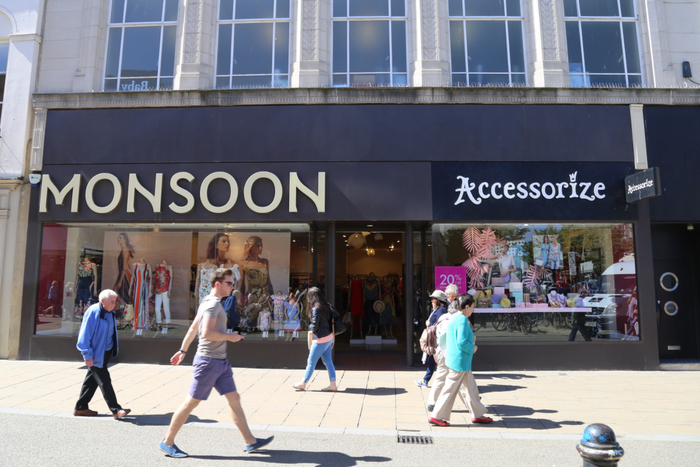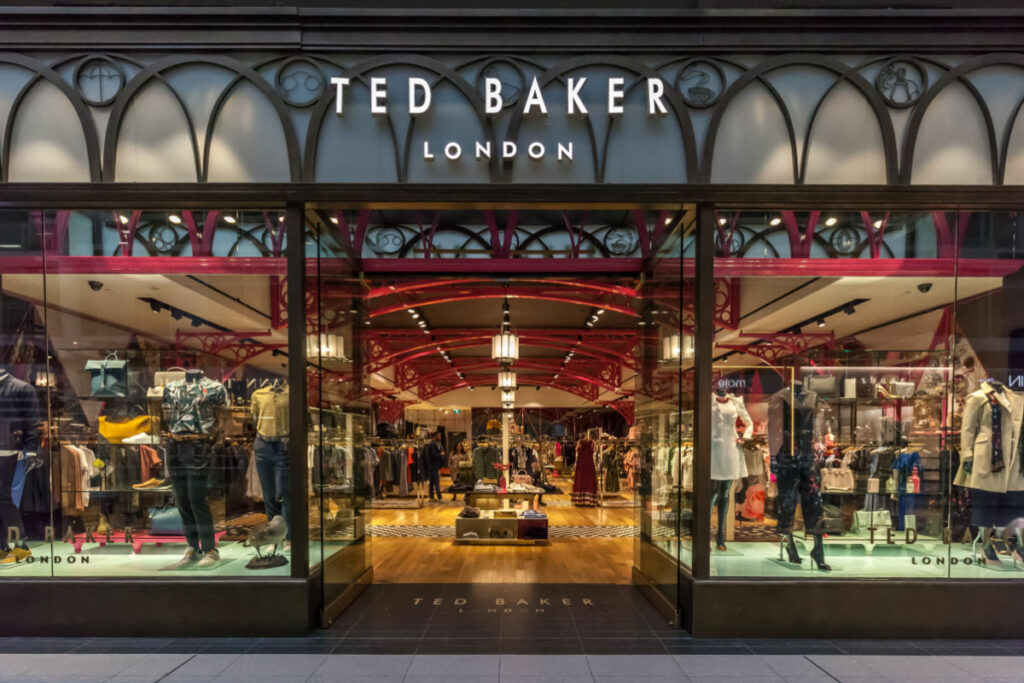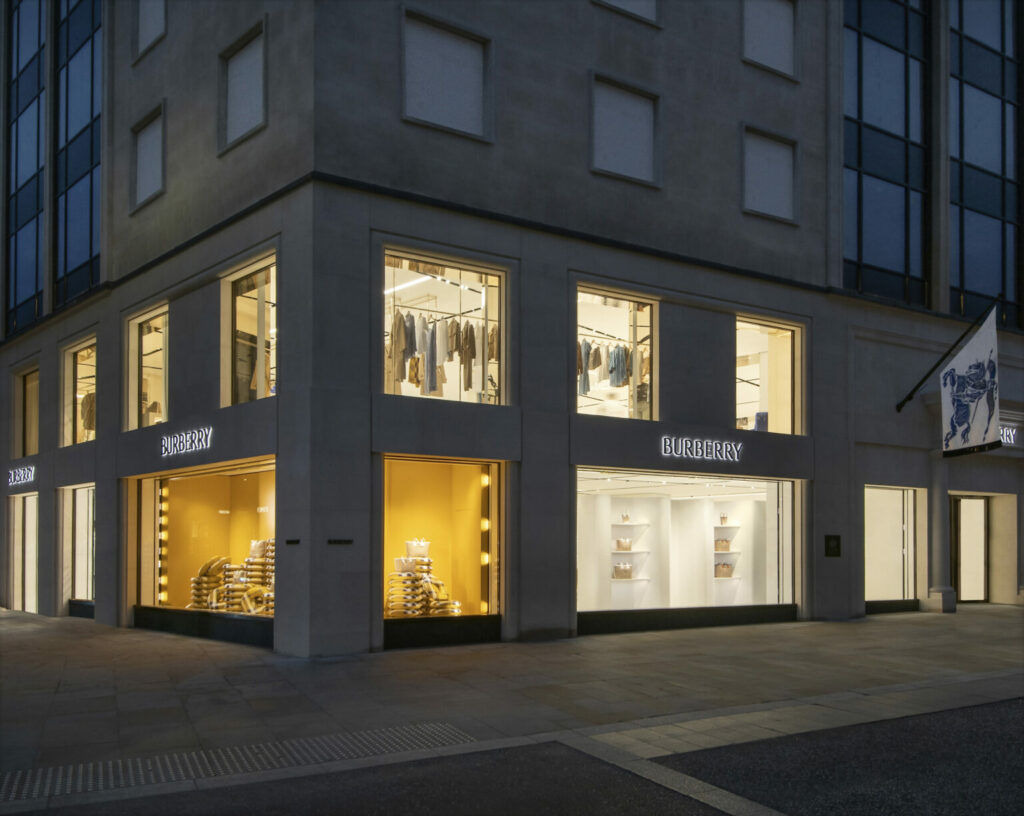A BRIEF TIMELINE
1973: Market stall trader Peter Simon opened the first Monsoon store in Beauchamp Place, London after being inspired by the colour and local fashion of India, Turkey, Iran and Afghanistan during a road trip.
The first Monsoon collections featured clothes made with hand-loomed cotton and silk fabrics, organic vegetable dyes and artisan block-printing techniques.
Monsoon worked with craftspeople in villages and small communities.
1984: The first Accessorize store opened in London’s Covent Garden.
1994: The Monsoon Accessorize Trust is founded, aiming to help disadvantaged women and children across Asia.
1995: Monsoon launched its first childrenswear range.
1998: A quarter of Monsoon was floated on the London Stock Exchange for 198p a share, raising £80 million. At the time, Monsoon was worth £350 million.
1999: Monsoon launched its first homeware range.
2000: The company launched a website for both Monsoon and Accessorize. As a contemporary art collector and a trustee of the Tate Gallery, Peter Simon started the Monsoon Art Collection.

2003: Peter Simon tried to buy back 20 per cent of the free float using a novel tender method.
2005: Simon said he wanted to take Monsoon private. In spite of strained relations with shareholders, he began re-engaging with the City.
2007: Simon bought back all shares in the company held by external investors for £185 million to become 100 per cent owner. Meanwhile, Monsoon Accessorize was honoured with the Queen’s Award For International Trade.
2008: Monsoon launched a bridal wear range. The company also opened a new head office in London’s Notting Hill.
2010: Monsoon and Accessorize launched social media platforms.
2013: Apple head of retail John Browett became chief executive of Monsoon Accessorize. Monsoon was also criticised by the Forum of Private Business for requiring all new suppliers to give a blanket rebate of up to four per cent on all invoices as well as a further charge of up to 10 per cent for early payment.
2014: Simon took a significant minority stake in British furniture and homeware retailer Loaf for an undisclosed sum.
2015: Finance director Paul Allen was promoted to chief executive to replace Browett.
Monsoon Accesorize was also at the head of a list published by HMRC of companies that had failed to pay its workers the national minimum wage. Due to the policy requiring employees to wear Monsoon clothes at work, the cost of which was deducted from wages, the company had underpaid 1438 UK workers by over £104,000. The company was fined more than £28,000, and began paying a clothing allowance and raised wages.

2016: Monsoon Accessorize announced it would close down 141 stores as leases approach expiration in a move to decouple the two brands. Peter Simon vowed not to pay any dividends during the restructuring of his business. At the time of the restructuring, O2 Telefonica finance director Elaine Deste joined Monsoon Accessorize as its new finance boss.
2018: In the 12 months to August, Monsoon Accessorize showed turnover of £296 million, of which £62 million came from overseas stores, according to accounts filed at Companies House. The firm recorded a post-tax loss of £22.5 million for the year.
2019: Allen exited the group and Simon became joint chief executive of the company with chief operating officer Nick Stowe.
In January, Monsoon Accessorize’s German arm filed for insolvency in a local court in Bavaria. The news placed the future of Monsoon Accessorize’s 190 staff members working across 30 stores in Germany at risk.
In April, Monsoon Accessorize reveals it could be on the verge of launching a CVA after parent company Drillgreat brought in Deloitte to explore the retailers’ options, including speeding up its store closures scheme and rent reductions on Monsoon and Accessorize’s joint estate of almost 270 stores.
Simon invested £12 million of his own money into the business as part of the CVA.
Adena Brands acquired both Monsoon and Accessorize to ensure they continue to trade. The terms of the deal include a cash injection of up to £15 million by Simon, in addition to the £12 million he invested in the business at the time of its CVA.
In June, shopping centre giant Intu said it expected be the biggest victim of Monsoon Accessorize’s CVA. Monsoon had 19 stores in Intu’s centres at the time, of which four were due to face rent cuts of over 50 per cent, while six others would have rents slashed by over a third if creditors were to approve of Monsoon’s restructuring in July.

2019 (cont’d): Although no closures had been proposed, Monsoon said it was seeking to close down at least seven shops within eight months.
In July, 90 per cent of Monsoon’s landlords agreed to cut rents at 135 stores, following the retailer’s proposed CVA. Monsoon Accessorize offered landlords up to £10 million if it goes on to trade profitably in the future.
In September, property company British Land announced plans to derail the restructuring of Monsoon Accessorize’s CVA. British Land owns just five of Monsoon Accessorize’s shops and voted against the CVA that was backed by the majority of creditors. The legal challenge was ultimately dropped later in the month, which allowed Monsoon Accessorize to go ahead with its restructuring plan.
2020: In March, Monsoon Accessorize said it had been badly affected by the coronavirus pandemic and was looking at a range of options. A possible sale of the business was one option, as restructuring experts from FRP Advisory were drafted in to work on possible scenarios.
In April, Peter Simon wrote to suppliers and told them the company may need to cancel or reduce its autumn 2020 orders in order to mitigate the financial impact of the pandemic.
In May, Monsoon Accessorize said it was on the brink of falling into administration, which would place 3500 jobs at risk of redundancy. FRP Advisory were placed on stand-by to file a notice of intention to appoint administrators.
On June 2, Monsoon Accessorize warned landlords that they have a week to offer up rent waivers or it will permanently close down stores.
On June 9, Monsoon Accessorize fell into administration, blaming the impact of Covid-19 and adding that the subsequent lockdown since late March made the business unviable. Simon almost immediately bought the retailer out of administration, via a pre-pack administration deal, and said there would be an immediate loss of 545 jobs and 35 store closures.
The buyout deal from Adena Brands, a company ultimately controlled by Simon, covers the retailer’s brands, head office and distribution centre. Adena said it would enter talks with the landlords of many of Monsoon and Accessorize’s 230 stores to see if they can reach terms to reopen them once the lockdown ended.
On June 16, retail property specialist Harper Dennis Hobbs was appointed by Monsoon Accessorize to help reopen over 100 stores across the UK. Monsoon Accessorize will be working with Harper Dennis Hobbs to secure new leases with landlords and reopen stores as quickly as possible.
THE REASONS
The Covid-19 pandemic’s impact on retail has been severe and well documented. Lockdown has seen footfall decrease dramatically on the high street, and Monsoon and Accessorize have emerged as just one of many examples that have not been able to cope with the sudden dry-up of in-store customers.
With the effect of coronavirus bringing a sudden stop to trade on the high street, high overheads such as leases, and increased global competition via online shopping services have been the downfall of many retailers.
While executives said that both Monsoon and Accessorize were trading well prior to the pandemic, neither could withstand the impact of closing for three months, which may suggest a fundamental lack of agility to react to changing consumer behaviour, both in terms of journey and choice.
Nottingham Business School research associate Nelson Blackley said that just like other fashion retailers that have recently gone into administration, like Laura Ashley, Cath Kidston, or Oasis & Warehouse, Monsoon Accessorize has “struggled to remain relevant to 21st century consumers in such an incredibly competitive and discount-heavy high street”.
“Their core womenswear range hasn’t really adapted to customers’ changing needs – this includes for instance, the demand for more multi-functional and ‘season-less’ fashion,” he told Retail Gazette.
“Monsoon Accessorize has struggled to remain relevant”
Catherine Erdly, founder at business consultancy firm The Future of Retail, agreed. She added that the retailer was facing problems prior to the pandemic – the main one being the increasing need to remain relevant.
“We’ve seen this play out before with players like Oasis & Warehouse as well as Cath Kidston – that mid-range of brands that are neither competing on price nor totally tuned in to the needs of a niche market, Monsoon and Accessorize fall into that unfortunate middle,” she explained.
“On top of that the Accessorize business, in particular, has benefited from their successful airport stores and of course, that will have had a knock-on impact with travel being cut back.”
Blackley added that despite the retailer’s proposed rent reductions, which were announced less than a year ago, “Monsoon Accessorize was still paying a lot of high rents in some markets and many of their Monsoon stores were over-spaced”.
Brian Burke, director at business advisory firm Quantuma, said Monsoon Accessorize remained in “critical condition” despite the CVA it secured last year in July. In October 2019 its auditors from BDO cast further doubt on its financial viability by suggesting that covenants were expected to be breached. BDO stated at the time that “there can be no guarantee that funding sources will be available should they be needed”.
“Monsoon Accessorize’s failure should be a bitter wake-up call for the sector”
Burke said that while Monsoon Accessorize may have been trading at acceptable levels prior to the pandemic, and operating within the terms of the CVA, “the business was clearly in no position to withstand the financial impact of having to close all its UK stores and administration was inevitable”.
Michael Mulligan, insolvency partner at law firm Shakespeare Martineau, agreed. He said that despite being bought back in a pre-pack deal by founder Peter Simon, the futures of over 500 staff and dozens of stores are now on the line if discussions with landlords don’t go well.
“With a recession looming, Monsoon Accessorize’s failure should be a bitter wake-up call for the sector, reinforcing the urgent need for a longer-term solution to its enduring struggle,” Mulligan said.
Retailers are forecast to continue going under over the coming months, even after lockdown restrictions are eased, meaning landlords are increasingly at risk of being left with vacant buildings.
Adena and the senior management team will have to deliver significant change for Monsoon Accessorize to have a future on the UK’s high streets. The retailer may also need to see an improved product range while retaining the influence of 1970s Asian-inspired fashion.
If lease terms cannot be restructured sufficiently to make stores viable it is only logical that loss-making stores should be closed, and its high street presence scaled back. There is no point acquiring a business out of administration without addressing the issues that saw it fail in the first place.
Either way, Monsoon Accessorize may not be the last retailer to enter administration as a result of Covid-19. More and more retailers are coming to terms with the harsh reality from the impact of the pandemic and are recognising that restructuring is unavoidable.
Click here to sign up to Retail Gazette‘s free daily email newsletter

















